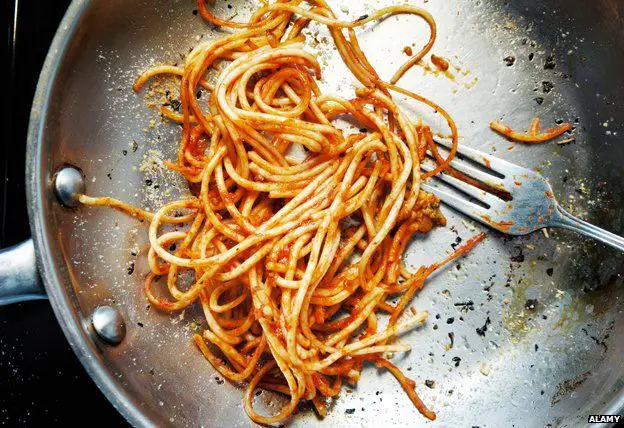How to Keep Hard Boiled Eggs Fresh in the Fridge
Eggs are a staple in most households and hard-boiled eggs are great for quick snacks, salads, and sandwiches. Preparing hard-boiled eggs ahead of time can be incredibly convenient. However, there is nothing worse than the unpleasant smell of sulphur that often emanates from boiled eggs stored in the fridge. Fortunately, there are several methods you can use to keep your hard-boiled eggs fresh without any unwanted smells. In this ultimate guide, we’ll explore those methods, as well as common mistakes to avoid and ingredients that can help with odor control.
The Science Behind Egg Odor
The unpleasant smell that comes from hard-boiled eggs is caused by a group of sulfur compounds called thiols. These compounds develop as the egg ages and break down over time. If you’ve ever noticed that a rotten egg smells much worse than an egg that’s just past its expiration date, you’ve experienced the effect of thiols first-hand.
Eggshells play a role in retaining the odors as well. They have tiny air holes which allow gases to pass through. Therefore, air-tight containers can help reduce or prevent the spread of these gases and preserve freshness.
Boiling eggs causes many of the sulfur compounds to oxidize, leading to the characteristic sulfurous odor of boiled eggs. Therefore, boiled eggs often have stronger odors than raw eggs.
Factors that Influence Egg Odor
The freshness of the eggs is one major factor influencing the sulfur compounds’ development and how long they retain their aroma. As an egg ages, it loses moisture and carbon dioxide via pores in its shell. As moisture escapes, proteins degrade more quickly in what remains inside. This process forms hydrogen sulfide, the odor of which can permeate the egg.
The boiling and cooling process also play an important role. If eggs are overcooked, the sulfur compounds break down more quickly and produce more gases, which leads to stronger smells. Moreover, poorly-cooled boiled eggs can develop unwanted smells and flavors when bacteria begin to cultivate.
Finally, storage temperature and duration have noticeable effects on the retention of egg odors. As time passes at higher temperatures or room temperature, eggs release more sulfurous gases. Therefore, keeping them cold in the fridge is essential.
Best Practices for Boiling and Cooling Eggs
To keep your hard-boiled eggs fresh, you should start by choosing good quality eggs that aren’t too old. This reduces the risk of sulfur compounds building up within, limiting strong odors.
When boiling or steaming eggs, it is essential to set a timer to avoid overcooking them. Timing depends on the size of each egg: Large eggs need about 12-14 minutes; Medium-sized ones require 9-10 minutes; Small boil for 6-7 minutes. Once cooked, immediately place them in ice water for quick cooling and prevent further residual cooking.
Peeling boiled eggs perfectly can be difficult due to factors such as age and freshness. Fresh eggs are notoriously hard to peel because of acid build-up behind their membranes that adheres to the cooked egg whites. To avoid this issue, add a teaspoon of baking soda before boiling to increase alkalinity levels.
It’s also important to move eggs from boiling water into ice-cold water—shocking—after cooking rapidly decreases the internal temperature of the eggshell preventing overcooking or bacterial cultivation.
Methods of Storing Hard Boiled Eggs
If you’re planning to store boiled eggs after preparing them, there are several options you can use to keep them fresh.
Keeping Them in Their Shell
This is the most common way of keeping boiled eggs fresh. The key to keeping them fresh this way is to store them in an airtight container. To save space, you should also consider storing them in their original egg cartons. You can label each carton to know how old each egg is or when the expiration date will come.
Peeling Beforehand
If you prefer to peel your eggs in advance or have any trouble peeling easily, there are alternatives available. The benefit of peeling beforehand is that there’s no shell waste and it’s simpler for impromptu recipes like sandwiches.
A plastic wrap or Ziplock bag containers can keep peeled hard boiled eggs from getting stale. It’s essential always to check for cracks in shells before storing as bacteria can make its way inside if parts of the protective coating are compromised.
Common Mistakes to Avoid
There are some common mistakes you need to avoid to preserve the quality of your hard-boiled eggs. These include:
Reusing Egg Cartons or Leaving Shells on the Counter
It’s not hygienic to reuse egg cartons as they may contain bacteria that can compromise the freshness of your boiled eggs. Not removing shells, especially on an unrefrigerated counter, accelerates spoilage; it causes rapid water loss and gas transfer known as permeability (EGGsellency).
Not Transferring Boiled Eggs to an Airtight Container
This is another common mistake. When boiled eggs sit outside in open air, they lose moisture content, followed by a transfer of odors, bacteria growth, and significant loss of flavor.
Other Ingredients That Can Help with Odor Control
Fortunately, there are ingredients that can help control egg odor. These include:
Vinegar, Salt or Baking Soda Solutions as Preventative Solutions
You can create a solution for boiled eggs in a mixture of vinegar with water or saltwater bath. The acidic qualities of the solution get rid of any egg white remaining on the shell, making them easier to peel. Alternatively, baking soda may be added to the cooking water to make peeling simpler, as explained above.
Coffee Grounds as a Solution for Residual Odors
Used coffee ground helps absorb unpleasant odors when boiled eggs remain exposed outside refrigeration. Simply place an open pack at the bottom of your egg carton or container to keep them odor-free and fresh.
Storing Deviled Eggs
Deviled eggs are often seasoned with different spices and mayonnaise-based sauces after boiling and peeling. Store prepared deviled eggs in partitioned containers for easy masking prevent intermixing flavors and keep them tasty without letting the moisture linger too long. Remember always to keep it under refrigeration.
Signs of Spoilage & Safe Consumption Practices
No matter how carefully you prepare and store your hard-boiled eggs, they won’t last forever. Here’s what to look out for when determining whether boiled eggs have gone bad:
- Smell: Leave unused eggs stored in a fridge beyond seven days; they develop an off-putting smell that signifies spoilage.
- Texture: A hard-boiled egg has a firm, yet tender texture. If they become slimy or sticky after cooking, discard them.
- Color Changes: If the color changes to pink, green or gray after boiling, dispose of it.
Generally, hard-boiled eggs should not be consumed beyond seven days after cooking. Ensure that you store boiled eggs in hygienic food-grade containers and refrigerate immediately after storage to prevent bacterial contamination.
Conclusion
Hard-boiled eggs are a nutritious and adaptable snack that is convenient to prep in advance. However, failing to store boiled eggs correctly can result in off-putting smells and ruin their flavor. By using these effective methods as outlined above in keeping eggs fresh in the fridge, you can reduce odors and provide maximum enjoyment from your boiled eggs without worry.
Overall, the most effective tips for retaining freshness include cooling quickly by shocking boiled eggs in ice water baths, maintain ideal storage temperatures, and continually monitor quality for signs of spoilage. Taking these steps will keep your hard-boiled eggs flavorful and nutritious while also reducing unwanted odors.
References
- A Comprehensive Guide on How to Store Eggs Correctly by FunFoodiesKitchen
- Betty Crocker 40 Cooking Tips You Need To Know
- The Ultimate Guide to Boiled Eggs :: Perfect Eggs Every Time by Lisa MarcAurele.
Q: Can I prevent hard boiled eggs from smelling bad in the fridge?
Absolutely! There are several things you can do to prevent this from happening.
Q: Why do hard boiled eggs sometimes smell bad in the fridge?
Hard boiled eggs sometimes give off a sulfur-like odor due to a natural chemical reaction that occurs between the egg whites and the iron present in the yolk. This is completely normal and harmless, but can be unpleasant to some.
Q: What can I add to my hard boiled eggs to prevent them from smelling bad?
Adding a little bit of vinegar or baking soda to the water when boiling your eggs can help prevent them from releasing odors after they are cooked.
Q: How should I store my hard boiled eggs to prevent them from smelling bad?
After cooking, cool the eggs in an ice bath before storing them in an airtight container in the fridge. Make sure they are fully cooled before placing them in the fridge, as condensation can form and cause a musty smell. Also, try not to keep them for too long – hard boiled eggs should ideally be eaten within a week of cooking.






